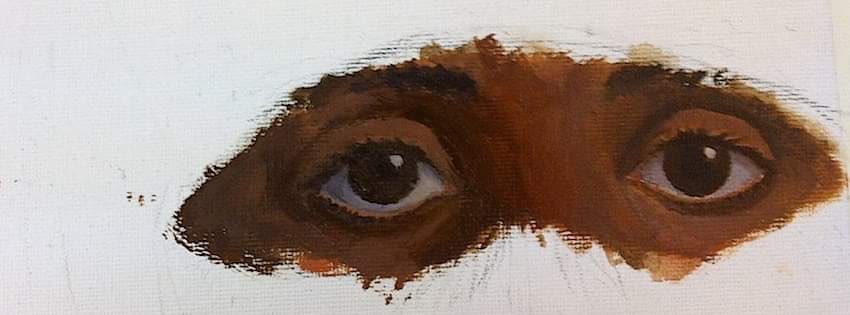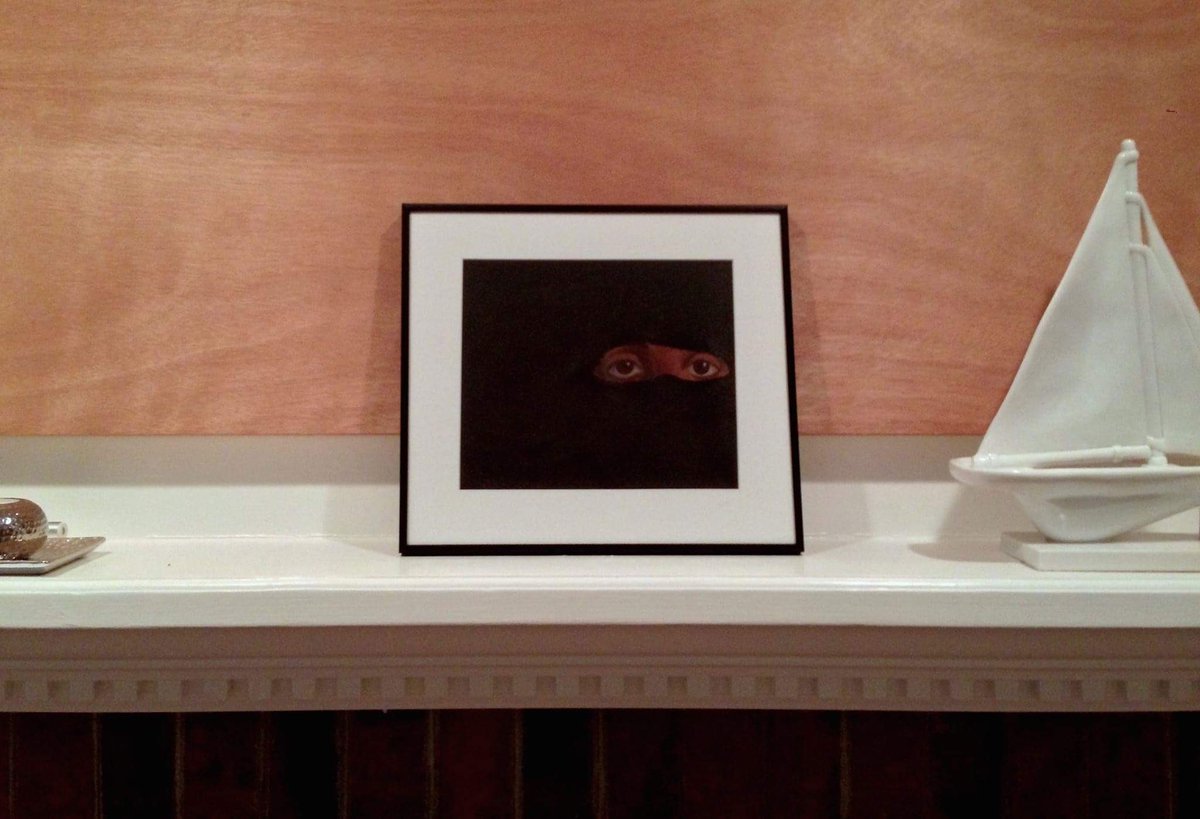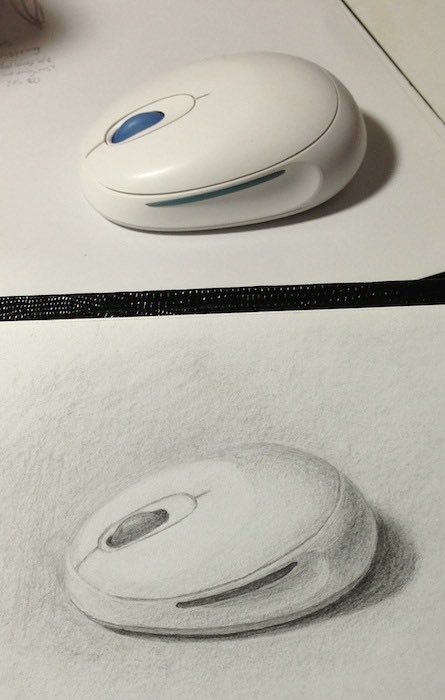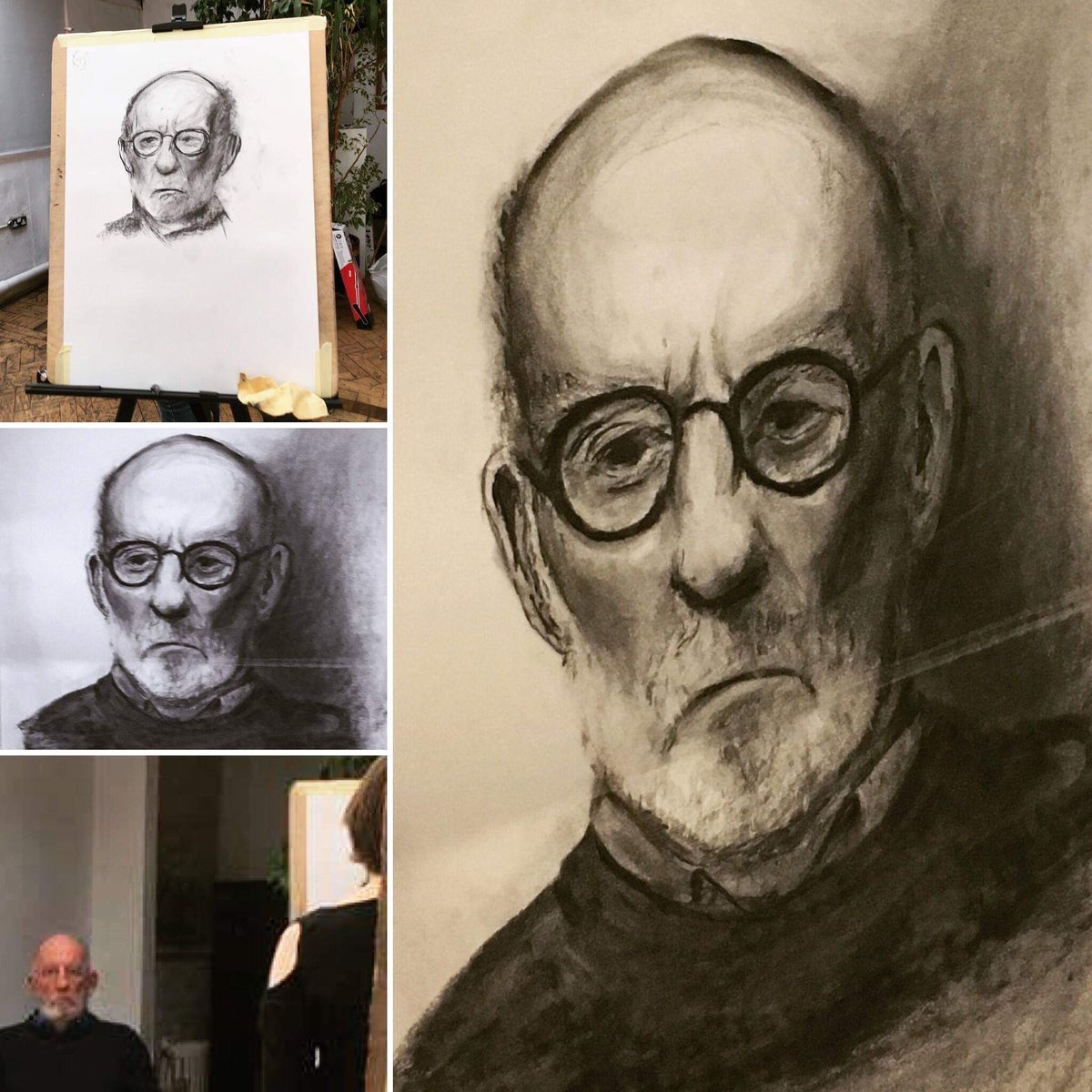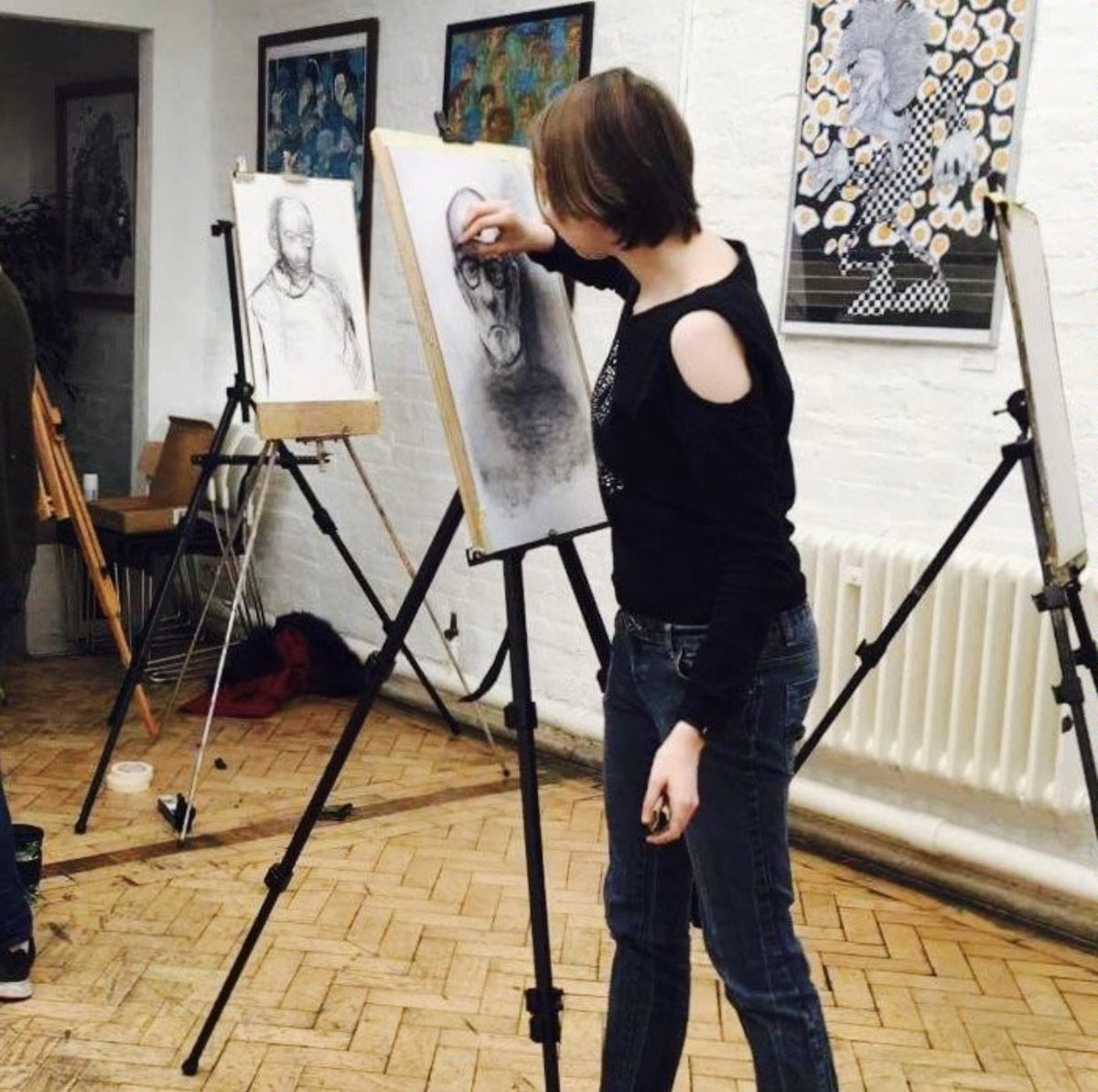I mentioned in this audio that practice is bullshit.
Thread https://twitter.com/reasonisfun/status/1265306610085363712
https://twitter.com/reasonisfun/status/1265306610085363712
Thread
 https://twitter.com/reasonisfun/status/1265306610085363712
https://twitter.com/reasonisfun/status/1265306610085363712
If you draw 1000 pictures you're not going to get a fraction as good as if you studied 1000 paintings (or scenes).
That's because you can practise errors.
That's because you can practise errors.
Tons of people do this and produce sonic after sonic
Getting better at stuff is about learning.
You can learn through doing physically, or by thinking about it rigourously.
Both have feedback mechanisms:
 Physical doing has feedback from the world.
Physical doing has feedback from the world.
 Mental doing has feedback from yourself (possibly via watching others).
Mental doing has feedback from yourself (possibly via watching others).
You can learn through doing physically, or by thinking about it rigourously.
Both have feedback mechanisms:
 Physical doing has feedback from the world.
Physical doing has feedback from the world. Mental doing has feedback from yourself (possibly via watching others).
Mental doing has feedback from yourself (possibly via watching others).
How I learnt to draw:
1. Drew a person and got feedback from artist friends. Sense of my baseline / what I didn’t know.
2. Read an art forum critique centre, wrote crits too (learnt how to identify mistakes)
3. Read tutorials obsessively to understand what else I didn’t know.
1. Drew a person and got feedback from artist friends. Sense of my baseline / what I didn’t know.
2. Read an art forum critique centre, wrote crits too (learnt how to identify mistakes)
3. Read tutorials obsessively to understand what else I didn’t know.
I hardly ever draw.
I can happily read art tutorial books all day. And then read the crit forums to see the kind of misconceptions budding artists have.
If I then drew at the end of such a day, I would just be better.
It’s not magic, it’s just what learning stuff does.
I can happily read art tutorial books all day. And then read the crit forums to see the kind of misconceptions budding artists have.
If I then drew at the end of such a day, I would just be better.
It’s not magic, it’s just what learning stuff does.
This was my first ever attempt at getting accurate ‘values’ (lights and darks).
I did it after an art buddy challenged me: he suggested I practise values daily, and I thought practice was for chumps.
(Not perfect. But what made me better later was THEORY, eg how shadows work.)
I did it after an art buddy challenged me: he suggested I practise values daily, and I thought practice was for chumps.
(Not perfect. But what made me better later was THEORY, eg how shadows work.)
This was my first ever charcoal drawing.
The difference between the top-left and final image was simply that I used the technique of standing back to see both subject and canvas side-by-side.
Which I knew from the theory of “sight-size” (best accuracy technique).
The difference between the top-left and final image was simply that I used the technique of standing back to see both subject and canvas side-by-side.
Which I knew from the theory of “sight-size” (best accuracy technique).
There’s a bunch of other theory I used, and I did sometimes draw a thing when I learnt it the first time to clarify to myself what it was.
This is what I was talking about in the audio above.
No magic. It’s just that if you find the right theory, the rest is fairly trivial.
The more you understand your problem and what you wanna do and what you wanna know/make, the easier it is to find the right ideas for it.
No magic. It’s just that if you find the right theory, the rest is fairly trivial.
The more you understand your problem and what you wanna do and what you wanna know/make, the easier it is to find the right ideas for it.
You do not need to put ideas into physical practice to develop them.
This includes skills.
This includes skills.
Physical skills like penmanship may take the nuanced feedback of physical reality. (Particularly when mental models are too low-res.)
But most skills (including physical skills like penmanship!) have a massive mental component.
In other words: theory matters.
But most skills (including physical skills like penmanship!) have a massive mental component.
In other words: theory matters.
If you don’t have a good theory, your practice will be stunted or pointless.
Educational approaches that extol practising are because:
- they suck at knowing what's relevant
- they don't understand how they did it either
- they need obedience and standardisation (eg for exams)
Educational approaches that extol practising are because:
- they suck at knowing what's relevant
- they don't understand how they did it either
- they need obedience and standardisation (eg for exams)

 Read on Twitter
Read on Twitter